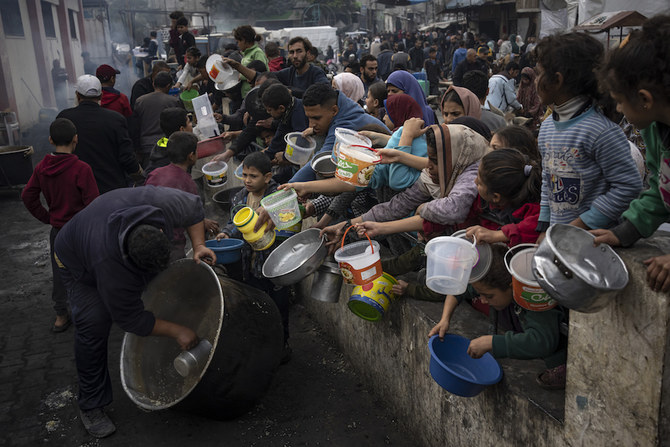A two-month-old Palestinian boy has died from starvation in northern Gaza, according to media reports, days after the United Nations warned of an “explosion” in child deaths due to Israel’s war on the besieged enclave.
The Shehab news agency said Mahmoud Fattouh died at al-Shifa Hospital in Gaza City on Friday.
One of the paramedics who rushed the boy to the hospital says Mahmoud died from acute malnutrition.
“We saw a woman carrying her baby, screaming for help. Her pale baby seemed to be taking his last breath,” the paramedic says in the video.
“We rushed him to hospital and he was found to be suffering acute malnutrition. Medical staff rushed him into the ICU. The baby has not been fed any milk for days, as baby milk is totally absent in Gaza.”
Mahmoud’s death came as the Israeli government – which launched its assault on Gaza following attacks by Hamas fighters in October – continues to ignore global appeals to allow more aid into the Palestinian enclave.
At least 29,606 Palestinians have been killed in Israel’s war on Gaza, while 69,737 have been wounded since October 7. The revised death toll in Israel from the October 7 attacks stands at 1,139.
The UN says some 2.3 million people in Gaza are now on the brink of famine.
Israel, which cut off all supplies of food, water and fuel into Gaza at the start of the war, opened one entry point for humanitarian aid in December. But aid agencies say stringent checks by Israeli forces and protests by far-right demonstrators at the Karem Abu Salem crossing, known by Israelis as Kerem Shalom, have hampered the entry of food trucks.
When the supplies do get through to Gaza, aid workers say they are not able to pick up the goods or distribute them because of a lack of security, caused in part due to Israel’s targeted killings of policemen guarding the truck envoys.
The situation is particularly desperate in northern Gaza, which has been almost completely cut off from aid since late October.
Doctors there have described the situation as “beyond catastrophic”.
Dr Hussam Abu Safiya, the head of Kamal Adwan Hospital in north Gaza, said he was seeing “many” deaths among children, especially newborns.
“Signs of weakness and paleness are apparent on newborns because the mother is malnourished,” Abu Safiya told Al Jazeera. “Unfortunately many kids have died in the past weeks … if we don’t get the proper aid urgently, we will be losing more and more to malnutrition.
Despite the dire situation, UN agencies have not been able to provide help.
The World Food Programme tried to resume deliveries to northern Gaza last Sunday but announced a suspension two days later, citing Israeli gunfire and a “collapse of civil order”. It said its teams witnessed “unprecedented levels of desperation” in the north, with hungry Palestinians mobbing trucks to get food.
The agency said it was working to resume deliveries as soon as possible and called for better security for its staff as well as “significantly higher volumes of food” and the opening of crossing points for aid directly into northern Gaza from Israel.
The UN has meanwhile said its assessments indicate that at least 90 percent of children under five in Gaza are affected by one or more infectious diseases while 15 percent, or one in six, children below two years of age in northern parts of the territory were acutely malnourished.
“The Gaza Strip is poised to witness an explosion in preventable child deaths, which would compound the already unbearable level of child deaths in Gaza,” said Ted Chaiban, UNICEF’s deputy executive director for humanitarian action, in a statement last week.
“We’ve been warning for weeks that the Gaza Strip is on the brink of a nutrition crisis. If the conflict doesn’t end now, children’s nutrition will continue to plummet, leading to preventable deaths or health issues which will affect the children of Gaza for the rest of their lives and have potential intergenerational consequences,” he said.
Before the war, only 0.8 percent of children below five in Gaza were considered acutely malnourished, the UN said.
“Such a decline in a population’s nutritional status in three months is unprecedented globally.”



